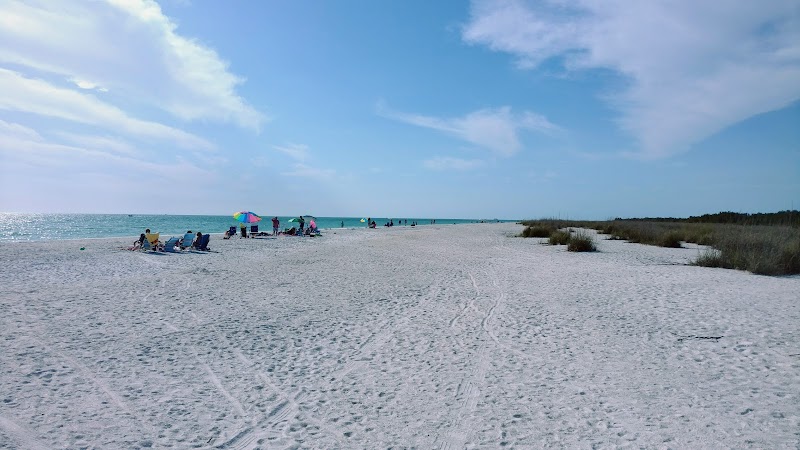
Tigertail Beach Nature Preserve Adventures
Tigertail Beach Nature Preserve is a unique coastal area on Marco Island in Florida, known for its diverse habitats including tidal lagoons, mangroves, and sandy beaches, offering excellent opportunities for wildlife observation and water-based recreation.
About Tigertail Beach Nature Preserve

Tigertail Beach Nature Preserve, located on the northern end of Marco Island, Florida, is a valuable coastal ecosystem that includes tidal lagoons, mangroves, dunes, and sandy beaches along the Gulf of Mexico. The preserve spans a few hundred acres and protects sensitive habitats crucial to a variety of local wildlife, including shorebirds, wading birds, and marine species. Historically, the area was shaped by natural tidal movements and has been preserved as a natural refuge amid a heavily developed island city. Visitors are drawn to Tigertail Beach for activities such as birdwatching, kayaking, paddleboarding, shelling, and swimming. The preserve features calm tidal pools and a sandbar that emerges at low tide, creating ideal conditions for exploring shallow waters and spotting diverse marine life. The surrounding mangroves also serve as nurseries for fish and crustaceans. The site blends natural beauty with accessibility, featuring boardwalks and pathways that minimize habitat disturbance while providing excellent wildlife viewing opportunities. Because of its location, Tigertail offers spectacular sunsets over the Gulf and is a favorite spot for photographers and nature enthusiasts. The preserve is managed to balance public access and habitat protection, making it a prime example of coastal conservation in Southwest Florida.
Highlights
Tidal lagoon and sandbar that appears at low tide allowing for water exploration
Mangrove habitats supporting diverse bird species including roseate spoonbills and ospreys
Scenic beachfront on the Gulf of Mexico ideal for swimming and shelling
Quiet boardwalk trail weaving through sensitive coastal vegetation
Notable Natural Features
Tidal Lagoon
A central feature of the preserve, this lagoon fills and empties with the tide and supports many aquatic creatures and birds.
Mangrove Forest
Protected mangrove thickets provide critical spawning grounds for fish and shelter for shorebirds.
Sandbar
At low tide, a sandbar emerges offering visitors a natural platform for wading and observing marine life.
